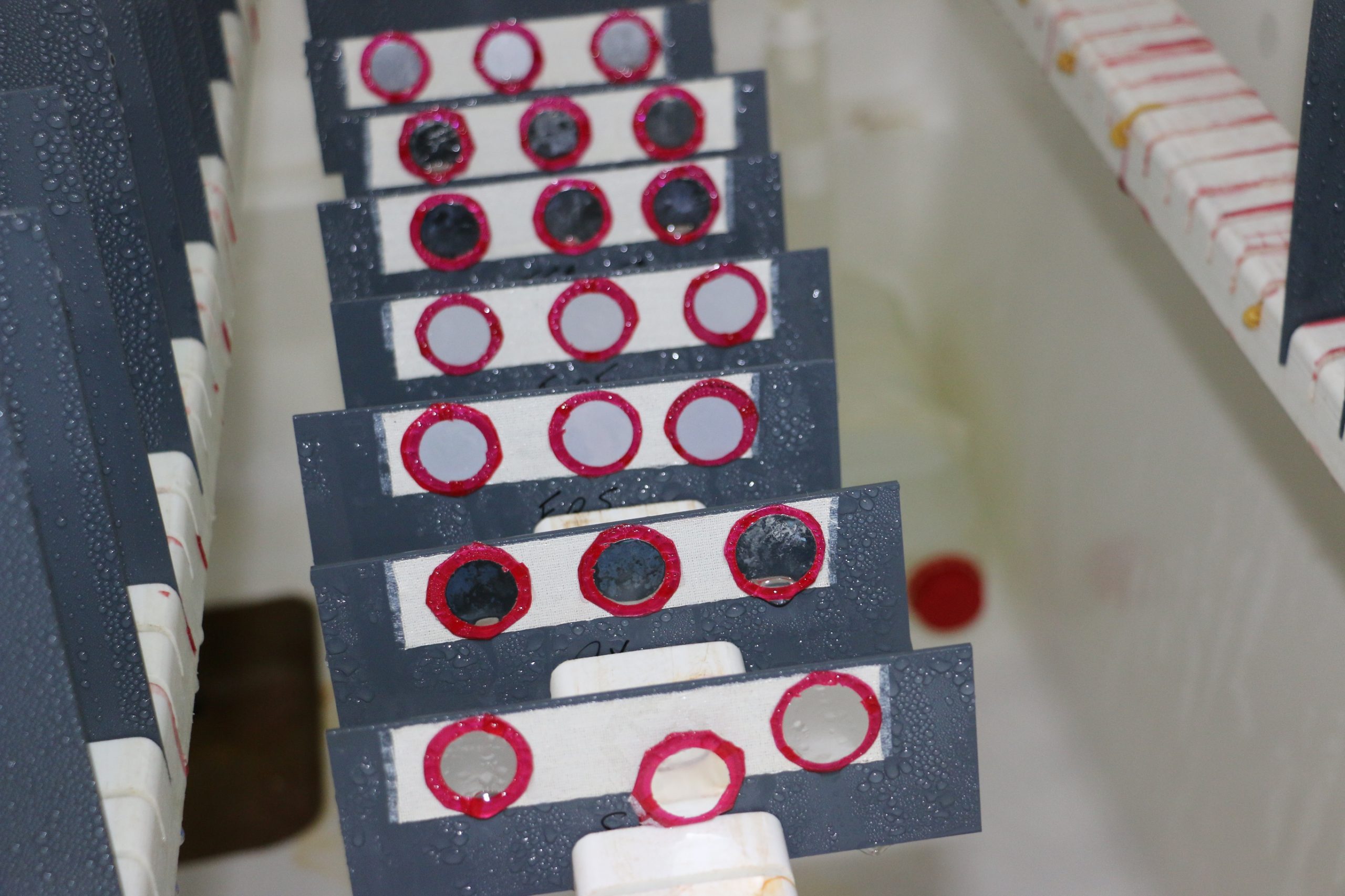NANODIZING has carried out a scientific-industrial research in the area of chromium-free aeronautical anodizing, addressing the REACH regulation from an innovative point of view. On this occasion the research has focused on the modification of the anodizing process, trying to improve the corrosion resistance of the current chrome-free processes approved by AIRBUS, such as the TSA.
The 2 scientific-technological objectives of the project were:
• To determine the influence of the morphology of the porous anodic alumina layers on their resistance to corrosion.
• Evaluate the morphological control as a tool to obtain chromium-free anodized that improve the corrosion resistance of the TSA anodized.
The project has been executed in two phases. A first one in which the influence of the control of the morphology of the anodic layer on corrosion resistance has been determined at the laboratory level. This stage, developed by LABCYP, has used electrochemical corrosion techniques, such as linear polarization and electrochemical impedance, in addition to SEM microscopy.
The second stage was carried out at titania facilities, specifically in its pilot surface treatment plant for aluminum alloys, in which the morphological control processes of the anodic layer developed at a laboratory scale previously have been reproduced. For this phase, the neutral saline fog chamber corrosion test has been used, since it is the reference in the industrial sector.
The results obtained open the door to continue this line of research for the development of anodized morphologically controlled in future projects.
The NANODIZING project is been fully developed in Andalusia, and had a budget of around €250,000, with an execution period of 24 months, ending on March 2019. The project has been funded by the Technological Corporation of Andalusia (CTA) and the CDTI, and co-financed by the Spanish Ministry of Science, Innovation and Universities and the European Regional Development Fund (ERDF), within the Plurirregional Operational Program of Spain 2014-2020, with the aim of promoting research, technological development and innovation.



